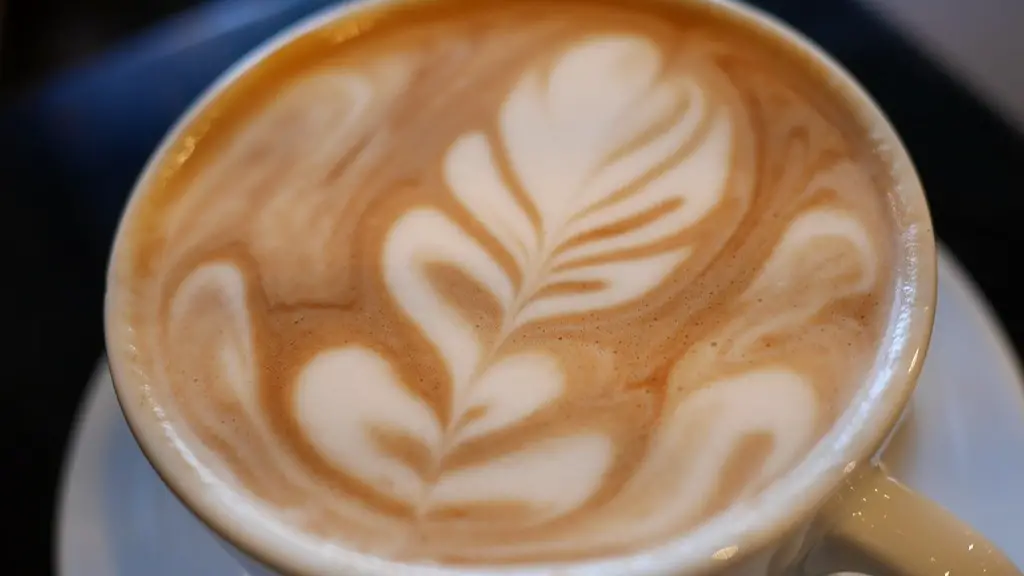Coffee and Health
Coffee is a widely consumed beverage and it is an increasingly popular choice for its pleasant flavor and energizing effects. Some research suggests that there may be some health benefits associated with drinking coffee, including reducing the risk of certain diseases or even boosting longevity. But it’s important to understand that different people react differently to caffeine, and that there may be some risks associated with drinking too much coffee, including increased heart rate and insomnia. With this in mind, this article will explore when the right time to drink coffee is.
Physiologically speaking, it is generally thought that the best time to consume coffee is in the morning. That’s because, as a stimulant, it helps kick-start the digestive process, reviving the metabolism and creating energy for daily activities. Caffeine also promotes alertness, which can help for those early morning meetings or deadlines, and can provide a quick boost of energy when needed. The caffeine content in coffee will vary depending on the bean, but on average an 8-ounce cup of brewed coffee can contain roughly 95-200 mg of caffeine. Drinking up to 400 mg per day is generally considered safe for most adults.
For some people, drinking coffee in the afternoon can also be beneficial, as it can help to provide a much needed energy boost later in the day. But if consumed close to bedtime, the natural alertness that the caffeine induces can lead to difficulty sleeping. To avoid disturbed sleep, many experts recommend avoiding caffeine within six hours of bedtime. Plus, as coffee has a diuretic effect, it’s also not recommended within two hours of bedtime to prevent disrupted sleep due to needing to get up multiple times throughout the night.
In addition to the physiological aspects of coffee, there are also psychological benefits to drinking coffee at certain times of day. For one, the simple act of carving out some time for yourself each day for coffee can be calming and can help to provide a sense of ritual and calmness. Just like it’s important to set aside some time for exercise, it’s important to set aside some time for ourselves each day to take a break and reenergize.
That being said, the best time to drink coffee really depends on the individual. Some people may feel more energized earlier in the day, whereas others may need a later morning coffee to help get the day started. If drinking coffee late in the afternoon, consider whether the natural alertness or energy boost might affect your sleep at night. It’s important to be mindful of the total amount of caffeine that you’re consuming throughout the day and try to keep it within a moderate range.
Coffee and Your Diet
In addition to the timing considerations when deciding when to drink coffee, it’s also important to consider how it fits into one’s overall diet. Coffee can often be loaded with sugar and dairy, which are not part of a healthy diet. If you’re looking to enjoy a cup of coffee as part of a balanced diet, consider adding some unsweetened or low-fat dairy instead of sugary creamers, and opt for either agave or stevia to sweeten it instead of sugar.
Another way to make coffee a part of a healthy lifestyle is by choosing organic coffee. Organic coffee beans are grown without the use of pesticides or herbicides. By drinking organic coffee, you can avoid exposure to potentially toxic chemicals, as well as help to reduce the environmental impact of coffee production. Most importantly, organic coffee is usually higher in-depth flavor and aroma, so you can enjoy a cup guilt-free.
Ultimately, the best time to drink coffee really comes down to the individual. Consider your lifestyle and how coffee fits into it. If you find yourself needing a little more energy or alertness in the mornings, a cup of coffee can help. Just be mindful of the total amount of caffeine you’re consuming and the effects it may have on your sleep.
Coffee in Different Cultures
Coffee is one of the world’s most popular beverages and is enjoyed around the globe in a variety of ways. Different countries and cultures have their own unique way of preparing and drinking coffee. In Italy, a traditional cappuccino is served at breakfast time and contains a mixture of espresso and steamed milk. In Greece, a Greek frappé is a light, frothy coffee made with instant coffee, water, sugar, and ice. In Japan, traditional coffee shops serve hand-drip coffee, which is brewed one cup at a time.
In addition to the flavors of different coffees, there is also a strong culture and sense of ritual that comes with drinking coffee in different places. For instance, in the Middle East, coffee has traditionally been a symbol of hospitality and is served to guests as a way of welcoming them into one’s home. In Scandinavian countries such as Norway, Sweden, and Finland, drinking coffee is seen as a social pastime and an opportunity to connect with friends and family. Coffee culture in the United States has grown rapidly over the past few decades, with the rise of specialty coffee shops and the popularity of coffee-based drinks like the cider and latte.
As the world becomes more interconnected, the methods and traditions of coffee culture continue to evolve and become shared. The best time to drink coffee is ultimately up to the individual, but it’s also important to be mindful of the culture, customs, and rituals surrounding coffee wherever you may be.
Coffee Consumption and the Environment
Coffee production is big business and it is one of the world’s most popular beverages. In 2018, the total global production of coffee was 7.2 million metric tons, with the United States ranking as the world’s largest consumer of coffee. But it is important to recognize the environmental impact of coffee production. Coffee cultivation requires considerable amounts of water, and as coffee is often farmed in regions with limited access to water, this can be a major contributing factor to local water shortages. What’s more, the use of chemical fertilizers and herbicides often used in coffee production can be damaging to the environment.
In recent years, there has been a greater push for sustainable coffee production. This includes using organic practices such as using natural insect repellents and composting, minimizing water use, and using shade trees to provide the necessary ecological environment for coffee production. In addition, sustainable production often results in higher-quality coffee which has a tastier, richer flavor.
Overall, when it comes to drinking coffee, it’s important to be mindful of the impact that your coffee consumption has on the environment. Consider choosing organic or sustainable coffee if you are able to do so. Also, consider reducing or eliminating your consumption if you aren’t able to find sustainable or organic coffee. Every little bit helps.
Coffee and the Economy
Coffee is a major source of global economic activity and a key part of the worldwide food value chain. A majority of the world’s coffee is grown in developing countries in Latin America, Africa, and Southeast Asia. These countries rely on coffee for export and for trade, and for many small farmers, coffee is their primary source of income. In many cases, these farmers are unable to earn a livable wage and are thus left in poverty.
Coffee consumption, however, can also have positive effects on the economy, especially when it comes to specialty coffee. In the United States, specialty coffee consumption rose drastically between 2018 and 2020, and specialty coffee sales now account for over half of all coffee sales in the US. This growth has created jobs in the US specialty coffee industry, and has provided an income boost for the farmers responsible for providing that high-quality coffee.
Ultimately, it’s important to recognize the global economic impact of coffee consumption. Consider buying specialty coffee and supporting farmers in developing countries when you can, as this will help to ensure sustainable and equitable economic growth.
Coffee and Productivity
There’s no doubt that coffee can provide a quick boost of energy and alertness, which is why it’s long been a popular choice for those looking to increase their productivity. In small amounts, caffeine can be effective in improving focus, and a cup or two of coffee can help to increase motivation and productivity.
However, it’s important to keep in mind that too much caffeine can lead to jitters and an anxious feeling. Furthermore, some studies suggest that there is an “exit effect” of caffeine, where the effects of the caffeine can lead to an increased level of fatigue and reduced productivity in the long run.
Ultimately, it’s best to listen to your body and consume coffee in moderation for the best productivity results. Consider seeking out alternatives to traditional coffee like green tea or herbal beverages. These can provide a natural energy boost without the potential jitters that come from too much caffeine.
In conclusion, when it comes to coffee, the best time ultimately depends on the individual. Consider your lifestyle and how coffee fits into it. Mindful consumption can help you to get the most out of your coffee without any potential drawbacks.





